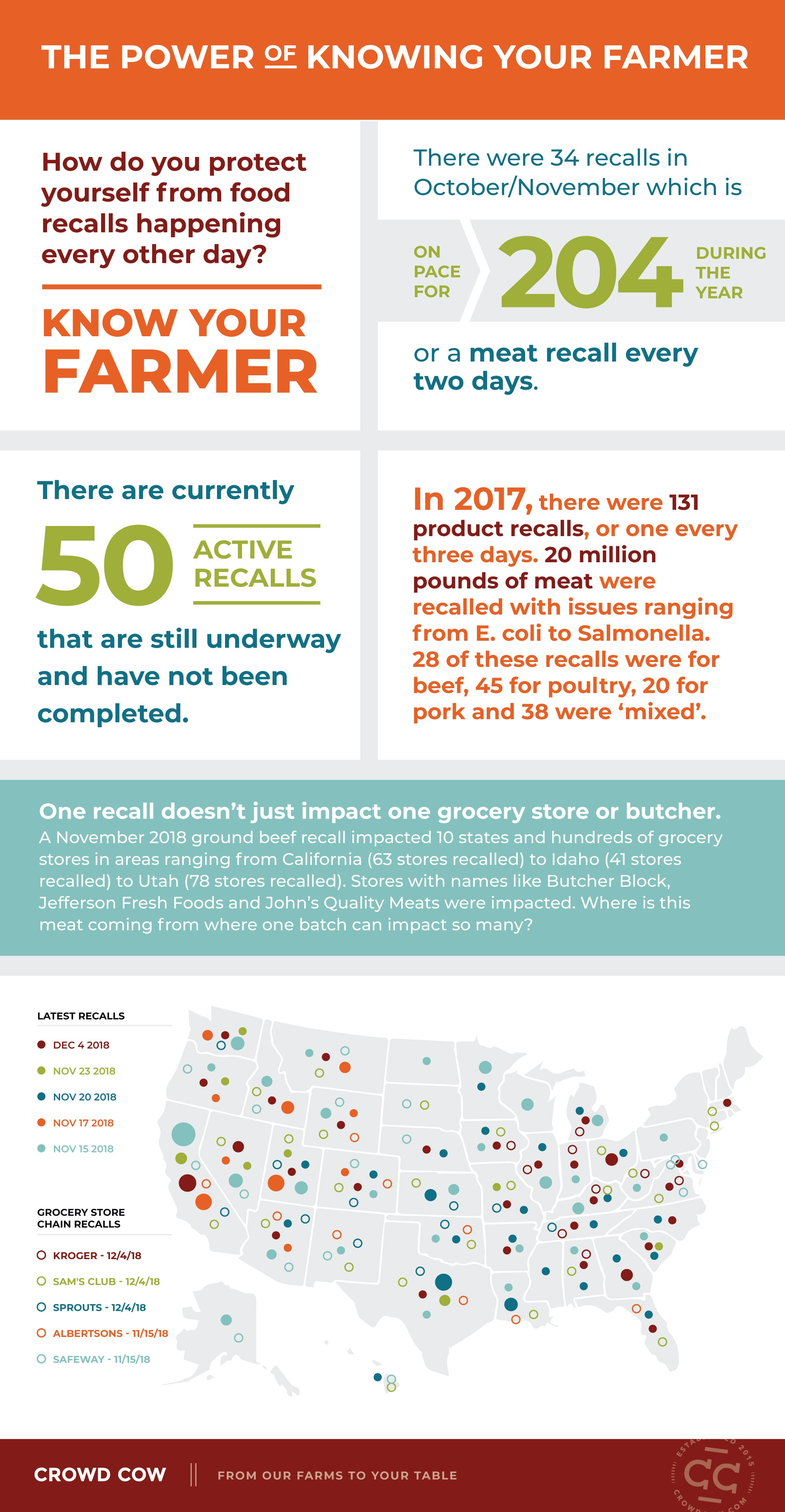Meat recalls have become as routine as trips to the grocery store. Since November, the U.S. is averaging a recall every two days and there are still 50 active cases. What is more concerning than a recall’s frequency is the scope. The latest raw beef salmonella recall spanned across more than 30 states and recent recalls have impacted big names like Kroger, Walmart and Whole Foods. Consumers understand that foodborne illness can happen, but there’s no excuse for the fact that the current supply chain provides no transparency and no traceability when it comes to the meat we eat every day.
“Recalls leave people feeling helpless because they don’t know anything about the meat on their plate aside from ‘it was purchased at the grocery store’,” said Crowd Cow co-founder Joe Heitzeberg. “It’s time for people to know the source of their food.”
People can buy a ‘Ribeye’ from the grocery store or order ‘tenderloin’ from an online butcher, but that says nothing about the farmer who raised the cattle, the way animals were treated or what they were fed. Many don’t even know the state where the meat came from or how it was processed. Current food labels don’t help identify the source, either. In fact, loopholes in current policy allow global companies to label meat as a ‘Product of USA’ even if the animal never set foot on U.S. soil.
Consumers are in this position because four large Ag companies control 82 percent of the beef market, two of which are in Brazil. Many people are unaware of this fact because they masquerade their brands as a multitude of farm-sounding names, giving people an illusion of choice. Whether buying from the neighborhood grocer, a butcher or an online store, the meat has ultimately come through the same supply chain.
‘Food Inc.’ exposed factory farming and how gigantic feedlots lead to poor animal welfare and create a breeding ground for disease, but didn’t leave consumers with many solutions on how to avoid the supply chain aside from going vegetarian. Whether it’s finding a local farmer or ordering from a place like Crowd Cow that sources all of its meat directly from independent farmers (over 100 farms in the US alone), Heitzeberg says the solution for people who are sick of mystery meat is to know the name of your farmer.
“Crowd Cow is building a whole new supply chain and a marketplace to give people an alternative that is focused on empowering customers with more selection, direct farmer access and radical transparency,” said Heitzeberg. “Our customers feel better about eating meat, and they also have better tasting meals!”
